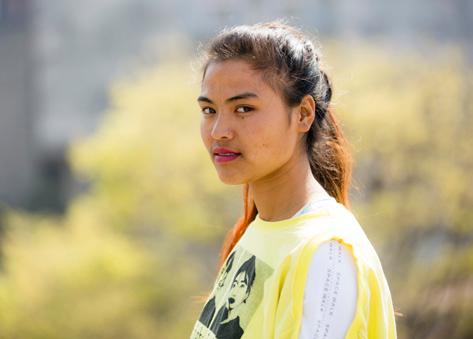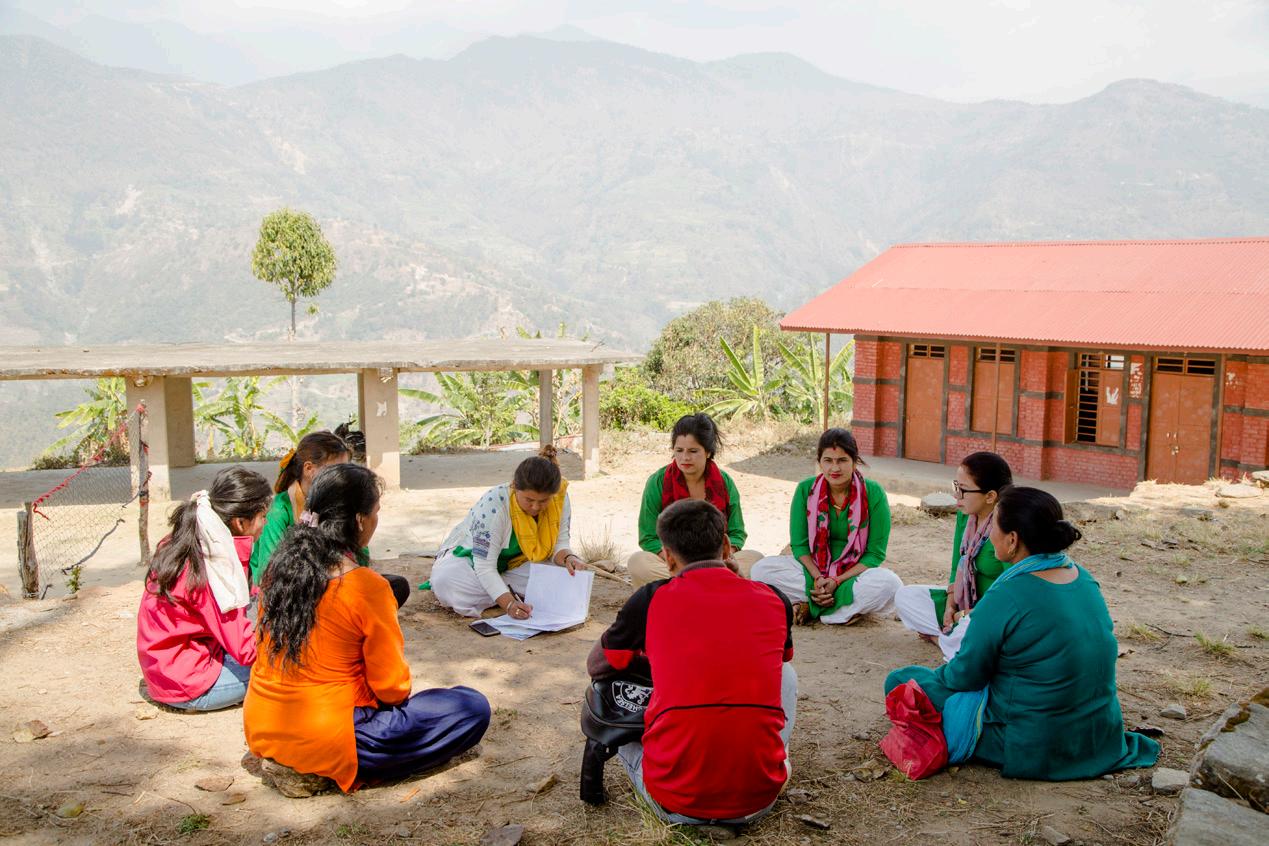
2 minute read
Bina, a young entrepreneur
Standing tall in the face of adversities – Bina, a young entrepreneur
Bina (19 years, name changed) lives with her family in a rural village in Nuwakot district. When she was 17, her father passed away putting the responsibility of sustaining the household on Bina. Forced to drop out of school, she began working as a farm labourer in the fields nearby.
“I suffered a lot physically as my body couldn’t do so much work. I had to bend down all day planting seedlings or lifting heavy sacks of grain. My body would hurt everywhere. However, I had to work as the income from agriculture at home wasn’t sufficient.”
Soon after, her brother was diagnosed with a stomach tumour changing Bina’s family circumstances once again. The family were forced to take a loan for his medical treatment, so she had to work even longer hours to repay this.
In 2019, during a household visit CLAMP staff and a Youth Change Agent (YCA) encouraged Bina to resume her education, as she was identified to be at high risk of modern slavery. Bina was apprehensive about starting study again, as it had been a few years since she had dropped out. However, she expressed her interest in livelihood training, as she thought this could help build her skills to become financially independent. After discussions with the ward office and Beneficiaries Feedback Committee, and consultation with Bina and her family, she was selected for the goat-rearing training - part of the livelihood skills development programme under the CLAMP project.
She shares, “I never knew that rearing goats could make me an entrepreneur and not just merely a shepherd.” Upon finishing the training, she sought help from local community members to build a


shed for goats. She received one goat from CLAMP but wanted to expand it further. As the family had no money to buy new goats, Bina and her mother approached a neighbour and borrowed three female goats - with the condition of returning them back with kids in sometime. Within four months of rearing them, the goats had given birth to four kids - three female and 1 male. Bina sold the male goat after six months for 10,000 Nepali Rupees (£75) and returned the three female goats to her neighbour, along with two kids as per their agreement. She now has two female goats – one of which is her own and the other provided by CLAMP. She shares, “I am determined to continue this business. It is helping me to repay the loan taken during the treatment of my brother. My business has built my credibility and people are willing to provide me loans. I have been teaching the skills of goat rearing to my mother, so she can help in the work. I have also understood about vulnerabilities which expose us to harm and if I come across any case of human trafficking in my locality, I will immediately seek BFM protection committee’s help.”










